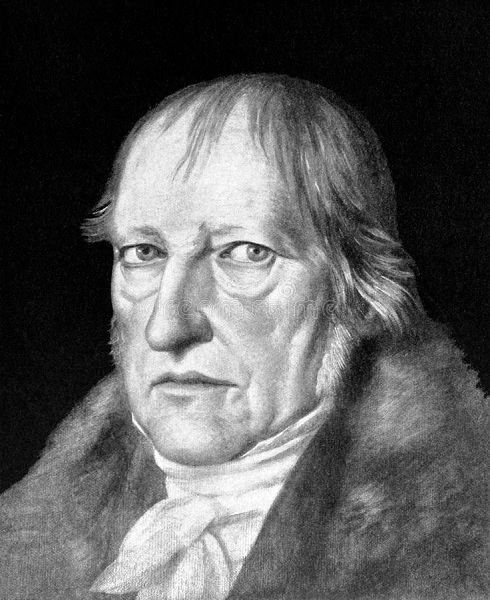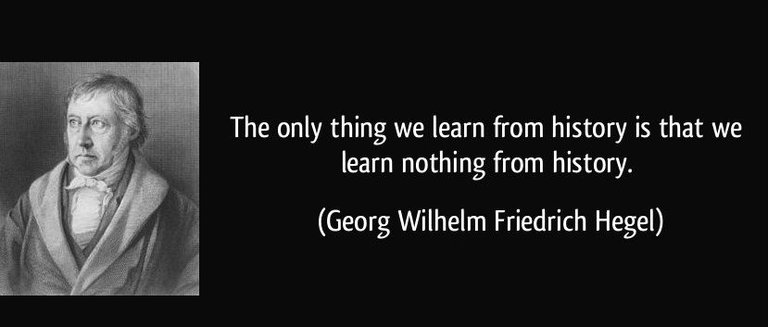Hegel's philosophy culminates in the development of the German classical philosophy of the second half of the 18th century and the beginning of the nineteenth century. Hegel justifies the essence of philosophy as a science from the point of view of objective idealism and the dialectical method, and the essential sign of science is the system. In the world of knowledge about it, nothing ever is forever given, invariably, everything is subjected to development and change, an endless process of development from the lower to the higher. The central principle and category of Hegel's philosophy is absolute. For him the primal is the absolute, and it is reason, absolute idea, something spiritual. From the development of the absolute idea, nature arises as an innocence, and the human spirit emerges from nature. Consequently, the absolute idea, reason, spirit, and secondary is matter. True reality, true reality can only be known by tracing the very development of the absolute idea by using the dialectical method. According to this method, all things are in a relationship and the development is through contradiction. The absolute idea is substance, essence, the first foundation of everything that exists, in it Hegel covers the whole world, the whole nature and society, it is universal reason, universal thinking, the universal spirit.
By the idea, Hegel understands a basic notion that defines everything else, and the absolute idea is universal, which is the identity of thought and being. Everything creates the peculiar and the singular - it is a devastating and creative beginning. Philosophy is a science of the universe, and the universe is an idea, a reason, a thought. Hegel speaks of a particular universe, which is a creative activity and only creates its own content. Such a particular can generally be God, the human consciousness. Philosophy examines the universal laws and categories of development of the idea. The dialectical method is connected with the essence of the absolute idea as thinking, reason and activity and its laws and categories. The idea is identical with self, but as a process it contains difference, denial, contradiction. Its activity is done in two directions: self-awareness and self-knowledge. Idea creates the world and man in order to become self-knowledge, the superior act of this self-knowledge is absolute knowledge, namely philosophy gives this absolute knowledge of the world. Hegel considers the category of alienation - the alienation between the divine world and the world of people, which carries the signs of human aimlessness, man has nothing of his own, his own life has no value, his goals are meaningless and nothing. Only evil is his priority. And the highest ability of man - thinking is "abandoned by God". Knowledge is more a curse than value and existence. His philosophy Hegel identifies with logic, and logic is the identity of dialectics, ontology, and gonessology. It deals with the deepest and most general definitions and relationships of reality, so it is a universal science. The concept is a real expression form of thinking, by which it realizes self in a form that is inherently inherent, not borrowed from anywhere. Hegel highlights the notion of "thought in general as something in common" and "essence of things", it is content of thinking. Hegel states that the course of world history is reasonable, it is a sensible discovery of the world spirit. Thus, spirit becomes the main engine of world history, it is the very world history itself. Spirit is also represented as a direct realization of the divine essence. In man, spirituality is present as a self-development of his mind, not as a benefit, as something outside. World History has acquired new dimensions, it becomes a product of creative reason rather than events and circumstances. Christianity is a sphere of self-awareness of the spirit. All its properties exist thanks to freedom, it is inherent to the spirit.
Hegel understands the activity of thinking ("reason is an expedient activity"), not as some imposition of his schemes over the empirically generalized structures of sensuousness and experience, not as a game of concepts, judgments and reasonings closed within the formal rules, content. The method is the self-reflective activity of thinking that highlights its development as an objective becoming the world in the notion. Hegel presents this knowledge process as a phenomenology that starts from the abstract contradiction between the mind and the object and reaches the absolute knowledge. The result of this long phenomenological path is the notion of science. It is a conceptual concept that carries in self the ontological essence of the existing one. This is the new logical form of objective logic as a universal science education. It not only combines knowledge, but also differentiated from Aristotle's form and matter, but, on the basis of the methodology of the principle of identity, builds a new aspect of science - not only as its "face", but also as its overall "corpus". In "Science Logic," Hegel admits that this reminds a bit of the old medieval metaphysics, for which "the true truth" is their intellectual unity with thinking. The pure spirituality, according to Hegel, is thinking in its essence, thinking in its being of universality, thinking in its function of immediate refiection. Hegel, according to Hegel, is a self-aware spirit, who is confident that he himself presents itself in the form of an unconditional universal existence. But he is not just with himself, he is not in the form of a self-assured spirituality that enjoys himself and his substantial existence. Spirit is a dynamism and experience of thinking, which in its historical modernization and subjective release presents the universality of the meaning of the epoch as in itself and for itself being, as its vital essence towards the manifold and manifestations at the phenomenal level.


@daydreaming
Idealism and the dialectical method in the Hegel's philosophy is ful of sense and deep knowledge
World wide famouse philosopher. thanks for the artical! know him more.
Awesome content. Well done
Great post man, very interesting. Little tip - Have an english translation on your post aswell!!